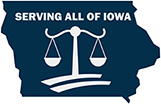- Clinton Truck Accident Injury Attorneys
- Phone: 641-792-3595
- Directions
Across the vast domain of highway systems, trucking accidents can create considerable disturbances, often causing serious injuries for those affected. In such turbulent situations, trucking injury lawyers act as steadfast supporters, offering guidance and direction to survivors. These legal experts are adept at handling the intricate landscape of trucking laws and regulations.
Like many states, Iowa follows the "rules of the road" stated in Iowa Code Chapter 321 - Motor Vehicles and Law of the Road. These rules include duties to yield at uncontrolled intersections, responsibilities when striking a disabled car, duties to yield to pedestrians, and more. This article explores common ways to prove fault in Iowa car accidents, considering that Iowa is a comparative fault state.
Understanding Comparative Fault in Iowa
In Iowa, the fault of drivers involved in an accident is compared. For example, if one driver is speeding and another fails to yield, the finder of fact (judge or jury) will assign a percentage of fault to each driver. If a driver is 51% or more at fault, they cannot recover damages. If a driver is 50% or less at fault, their recoverable damages are reduced by their fault percentage. For instance, if a driver sustains $100,000 in damages but is 25% at fault, they can recover $75,000.
Common Ways to Prove Fault in Iowa Car Accidents
1. Failure to Stop Within an Assured Distance, Failure to Maintain Control, and/or Following Too Closely
These violations often occur when a driver rear-ends another vehicle. Whether due to inattention or failure to see the car ahead, these are common accident types. Specific violations include:
- Assured Clear Distance Ahead: No person shall drive at a speed greater than that which allows them to stop within the assured clear distance ahead.
- Failure to Maintain Control of Vehicle: A driver must control their vehicle and reduce speed when approaching and traveling through intersections.
- Following Too Closely: A driver must not follow another vehicle closer than is reasonable, considering speed, traffic, and road conditions.
2. Failing to Yield
Failure to yield can cause various accidents, including at uncontrolled intersections, when pulling in front of oncoming traffic, or during passing. Specific yielding requirements include:
- Meeting and Turning to the Right: Vehicles meeting on the road must yield one-half of the road by turning right.
- Approaching or Entering an Intersection: When two vehicles enter an intersection simultaneously, the vehicle on the left must yield to the vehicle on the right.
- Backing Onto a Highway: No person shall drive a vehicle in reverse on a highway unless it can be done safely, yielding to any approaching vehicle.
- Slow Moving Vehicles: Vehicles moving slower than normal traffic must stay in the right-hand lane or as close to the right curb as possible.
- Driving on the Right Half of the Road: Vehicles must be driven on the right half of the road, with exceptions for overtaking, obstructions, and certain lane rules.
- Entering Through Highways: Drivers must stop or yield at the entrance to a through highway and yield to oncoming vehicles.
3. Failing to Obey a Traffic Control Device
This violation is common when a driver fails to stop at a stop sign or red light, resulting in a collision. Specific rules for traffic signals include:
- Green Light: Vehicles may proceed but must yield to other vehicles and pedestrians lawfully within the intersection.
- Yellow Light: Vehicles are warned to stop; if unable to stop safely, they may proceed cautiously.
- Red Light: Vehicles must stop and remain stopped until the signal changes. Right and left turns on red are allowed if not prohibited by a sign and done cautiously.
- Green Arrow Light: Vehicles may cautiously proceed in the direction of the arrow, yielding to other vehicles and pedestrians within the intersection.
Making a Left Turn Across Traffic
Drivers intending to turn left must yield to oncoming traffic, ensuring it is safe before turning.
Proving Fault in Truck Accidents
City Truck Accident Claims
City truck accidents involve government vehicles (e.g., fire engines, buses, utility vehicles) and require filing a claim with City Hall, not through insurance companies. The process includes submitting an Automobile Claim Form with details about your car, injuries, witnesses, and accident description. Attach relevant documents and estimates for property damage. If the claim is denied, you may pursue a lawsuit with a personal injury attorney's assistance.
Records Needed for Iowa Truck Accident Claims
Your Iowa truck accident lawyer will gather specific records as evidence, including:
- Police Report: Describes the accident scene and may indicate fault.
- Medical Records: Document injuries and treatment costs, essential for compensation.
- Truck Driver’s Driving Records: Show any history of reckless driving, helping establish the trucking company's fault.
Steps to Take After an Accident
Immediate Actions
1. Medical Attention: Prioritize medical care for injuries.
2. Report the Accident: Notify your insurance company but avoid giving recorded statements without legal advice.
3. Collect Evidence: Gather evidence at the scene and afterward.
4. Consult an Attorney: Seek legal advice to protect your rights and build your case.
Legal Support
Engaging a reputable personal injury law firm can significantly impact your case's outcome. Attorneys handle claim complexities, negotiate with insurers, and represent you in court if necessary.
Contact an Iowa Truck Accident Lawyer Today
At Walker, Billingsley & Bair, our team of experienced lawyers can assist you in navigating the complexities of truck accident claims. We are dedicated to ensuring you receive compensation for the damages you’ve suffered.
For more information on injury claims, download our free e-book, "The Legal Insider's Guide to Iowa Car Accidents: 7 Secrets to Not Wreck Your Case." To schedule an appointment with a truck accident lawyer, Contact our office at 641-792-3595 to speak with an attorney.

